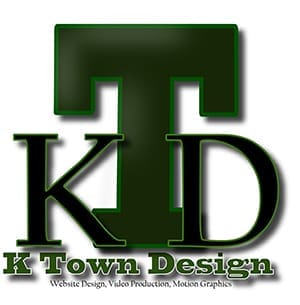Creating Budget-Friendly Websites for Small Businesses
Creating a website for your small business doesn’t have to break the bank. In today’s digital age, having an online presence is crucial, and doing so affordably is possible with the right approach. This guide will walk you through the steps to create an economical small business website without compromising on quality.
Why Your Small Business Needs a Website
A website serves as the digital face of your company. It’s where potential customers learn about your products or services, find your contact information, and decide whether or not to engage with your business.
Benefits of a Website
- Increased Visibility: A website makes your business visible to anyone with internet access. It opens up new opportunities to reach a broader audience beyond your local community.
- Credibility: Customers are more likely to trust a business that has a professional online presence. A website adds legitimacy to your brand.
- Customer Engagement: Use your website to provide valuable information, answer questions, and engage with your customers directly.
- Cost-Effective Marketing: Compared to traditional marketing, maintaining a website is relatively inexpensive and offers a higher return on investment.
Planning Your Budget-Friendly Website
Creating an affordable small business website starts with careful planning. Here’s what you should consider:
Determine Your Needs
Before you start, outline what you need from your website. Will it be a simple informational site or will it include a blog, e-commerce capabilities, or a booking system? Knowing your needs helps in choosing the right platform and features.
Set a Realistic Budget
Decide how much you can afford to spend on your website. Consider costs such as domain registration, hosting, design, and maintenance. Prioritize essential features and be prepared to make some trade-offs to stay within budget.
Choose the Right Platform
There are several website-building platforms available that cater to small businesses on a budget:
- WordPress: Known for its flexibility, WordPress offers thousands of themes and plugins to customize your site. It requires a bit of a learning curve but is cost-effective in the long run.
- Wix: This platform provides an easy drag-and-drop interface, perfect for those without technical skills. While it might have limitations in customization, it’s a solid choice for straightforward websites.
- Squarespace: Offers beautifully designed templates and an intuitive interface. It’s slightly more expensive, but it includes hosting and a domain name for the first year.
- Shopify: Ideal for e-commerce sites, Shopify is user-friendly and equipped with powerful selling tools.
Design Tips for an Affordable Website
An affordable small business website design doesn’t mean it has to look cheap. Here are some tips to create an attractive and professional website on a budget:
Use a Simple Design
Choose a clean and simple design that reflects your brand. Avoid cluttering your site with unnecessary elements. A minimalist design not only looks professional but also loads faster, improving the user experience.
Utilize Free Resources
Take advantage of free resources available online:
- Free Stock Photos: Websites like Unsplash and Pexels offer high-quality images that you can use for your site.
- Free Design Tools: Canva is a great tool for creating graphics and visual content without the need for advanced design skills.
Focus on User Experience
Ensure your website is easy to navigate. Use clear headings, organize your content logically, and make sure your contact information is easy to find. A good user experience keeps visitors on your site longer and increases the chances of conversion.
Keeping Your Website Affordable
Once your website is up and running, there are ways to maintain affordability over time:
Regular Updates and Maintenance
Regular updates ensure your website remains secure and functions smoothly. Set aside a small budget for periodic updates or learn how to do them yourself if possible.
DIY vs. Hiring a Professional
If you’re tech-savvy, consider building and maintaining the website yourself. However, if you lack the time or skills, hiring a professional for initial setup might be a wise investment. Look for freelancers or small agencies that offer competitive rates.
Optimize for SEO
Search engine optimization (SEO) is crucial for driving traffic to your site. Use relevant keywords throughout your content, optimize images, and ensure your website loads quickly to improve your search rankings.
Conclusion
Creating an affordable small business website is entirely achievable with the right approach. By planning carefully, choosing the right platform, and focusing on design and user experience, you can build a website that enhances your business’s online presence without draining your budget. Remember, the key is to start simple and scale up as your business grows. With these strategies, your small business can have a professional and functional website that attracts customers and drives success.


